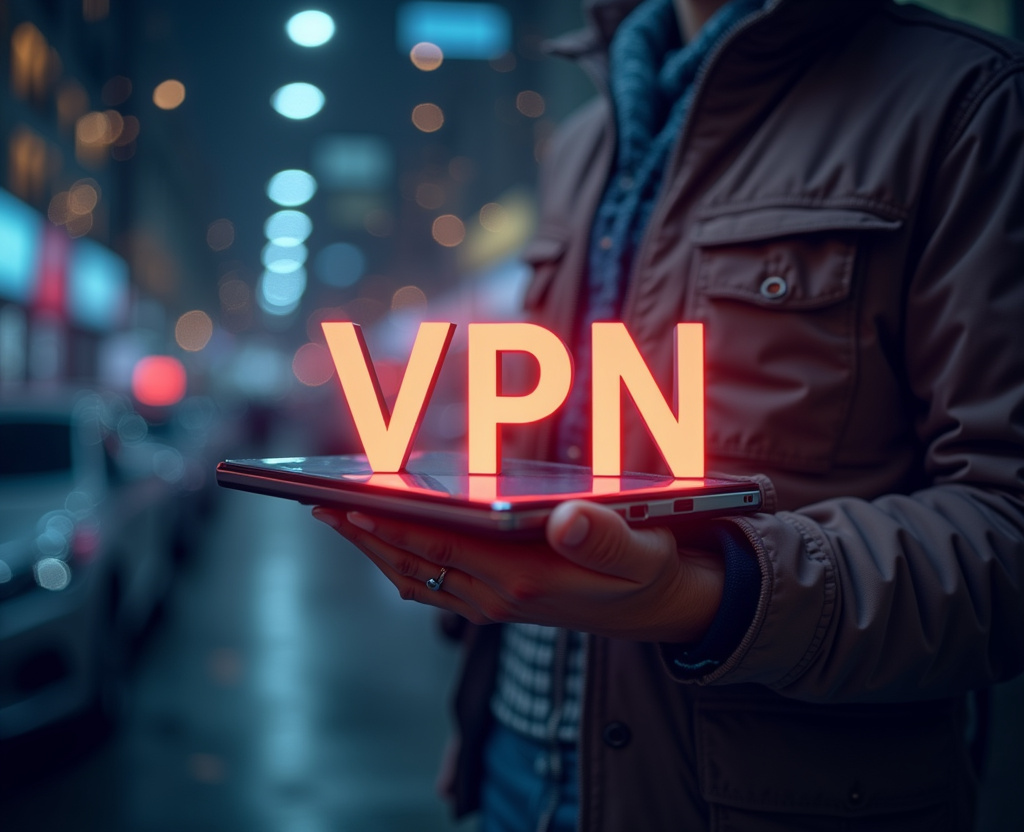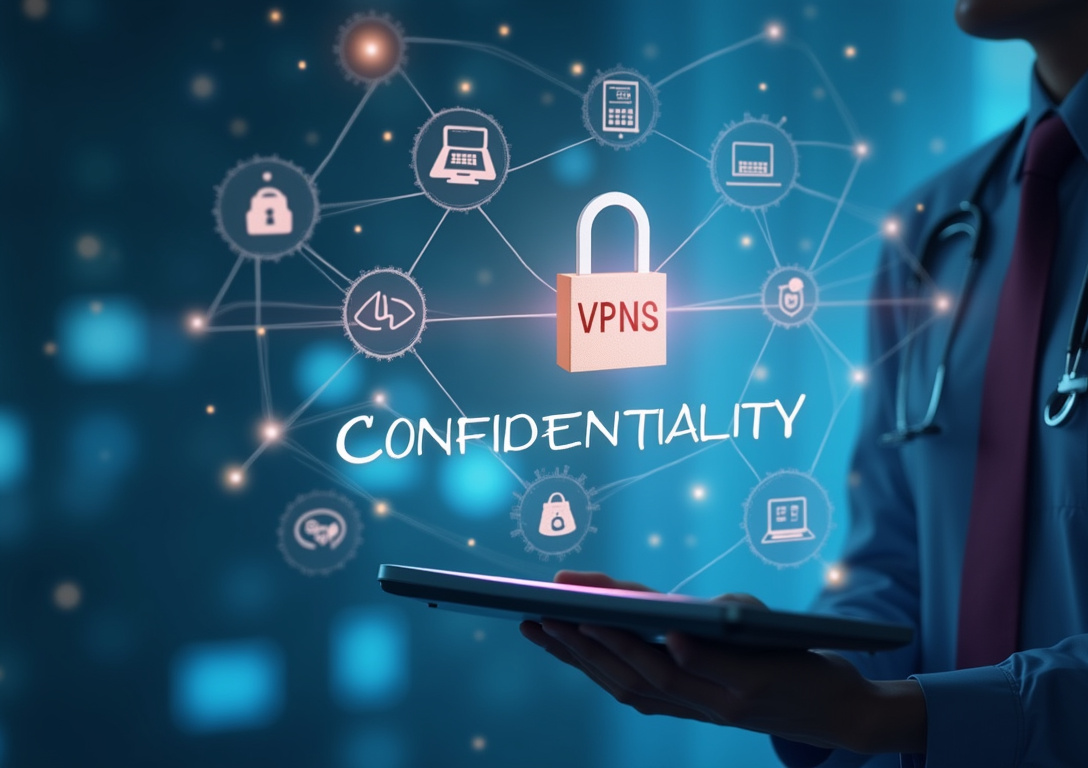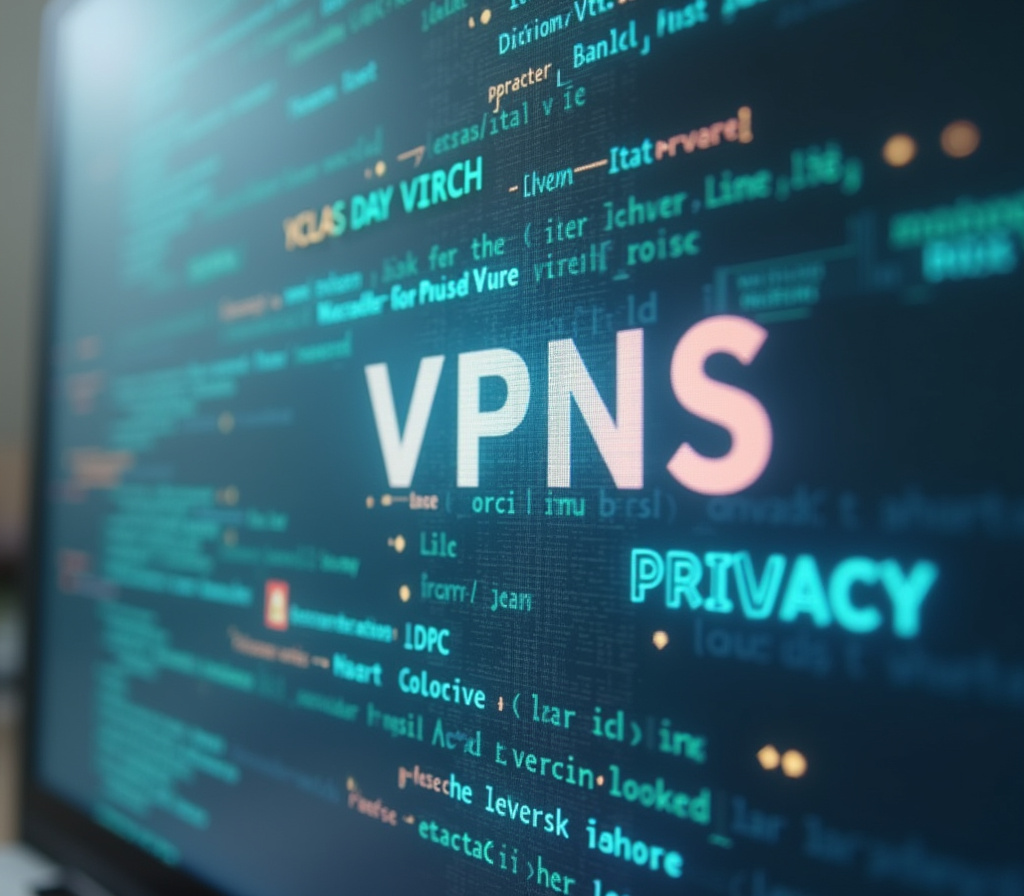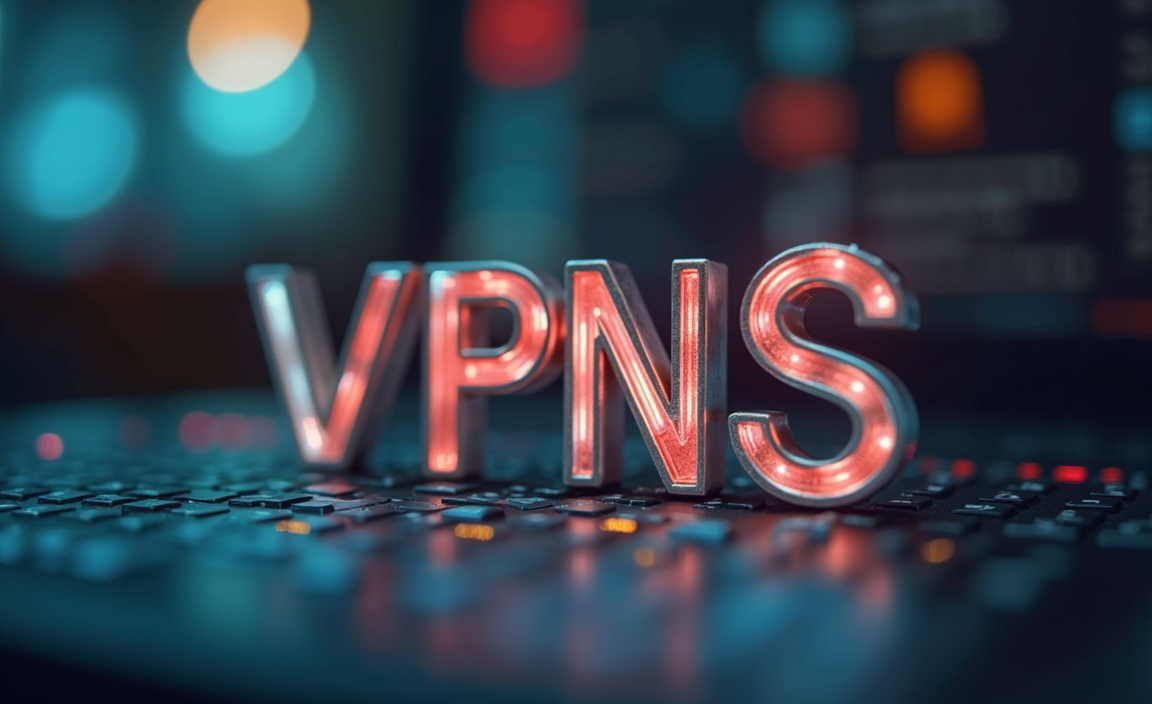VPNs Explained: Why You Need One in 2025
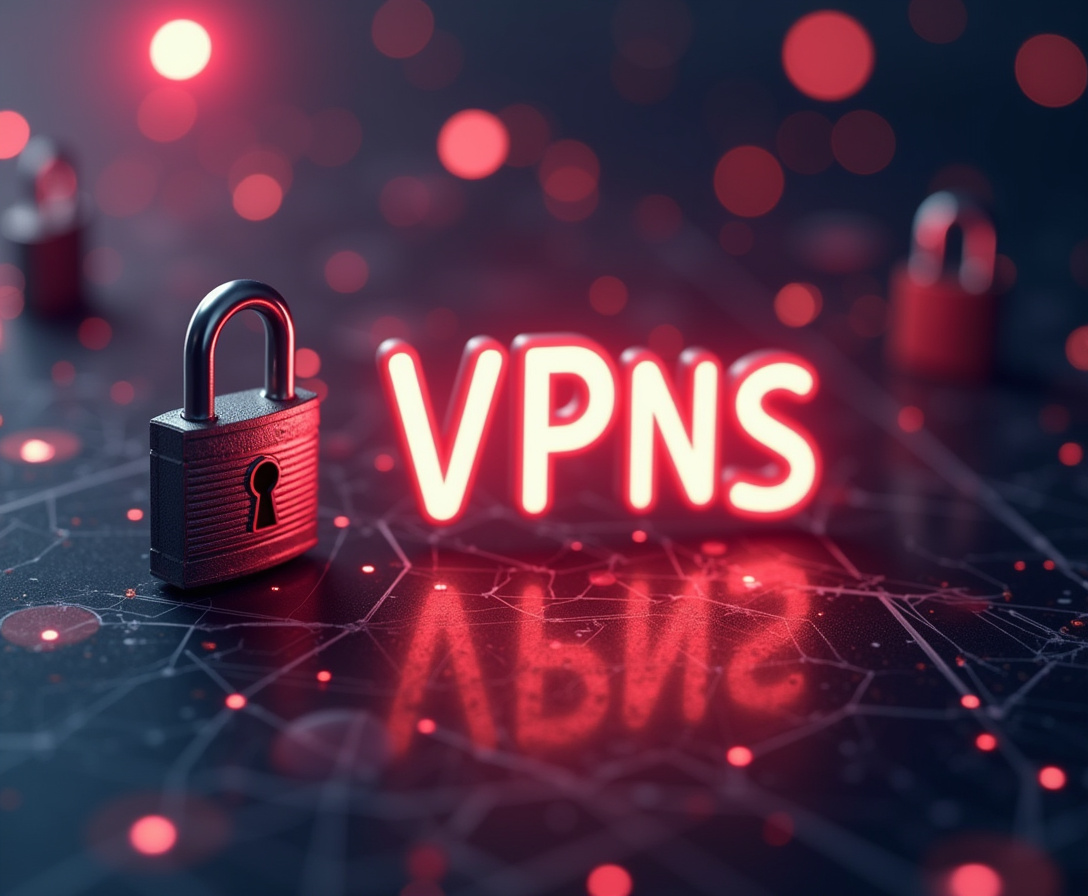
Table of Contents
VPN explanation
In today's hyper-connected digital world, online security has become a paramount concern for individuals and businesses alike. We entrust the internet with our most sensitive information, from personal communications and financial transactions to confidential work documents and cherished memories. Yet, this digital realm, while offering unparalleled convenience and access, is also fraught with potential dangers.
Malicious actors, ranging from individual hackers to sophisticated cybercriminal organizations, are constantly seeking to exploit vulnerabilities and steal valuable data. Government surveillance, though often justified under the banner of national security, can also pose a threat to individual privacy and freedom of expression. Understanding how to navigate this complex digital landscape safely and securely is no longer a luxury, but a necessity.
This is where Virtual Private Networks (VPNs) come into play, offering a crucial layer of protection and privacy in an increasingly interconnected world. This article aims to provide a comprehensive , delving into the functionalities, , and multifaceted it provides to anyone seeking to safeguard their online presence in 2025 and beyond. We will explore in the first place, examining the various threats that lurk online and how a VPN can effectively mitigate these risks.
We will also shed light on the key features and functionalities of a VPN, explaining how it encrypts your internet traffic, masks your IP address, and allows you to bypass geo-restrictions. Finally, we will discuss the ethical considerations surrounding VPN usage and provide guidance on choosing the right VPN service for your specific needs. The internet, while a revolutionary tool for communication, information access, and entertainment, is also a breeding ground for cyber threats.
From phishing scams and malware infections to man-in-the-middle attacks and data breaches, the dangers lurking behind the screen are ever-present. Ignoring these risks is akin to leaving your front door wide open, inviting unwelcome guests to invade your privacy and compromise your security. A VPN acts as a digital shield, encrypting your internet traffic and masking your IP address, effectively creating a secure tunnel for your data to travel through.
This encryption process scrambles your information into an unreadable format, preventing hackers, ISPs (Internet Service Providers), and government agencies from monitoring your online activities. The extends beyond simply hiding your IP address. By routing your internet traffic through a secure server in a location of your choice, a VPN effectively spoofs your geographical location, allowing you to bypass geo-restrictions and access content that may be unavailable in your region due to licensing agreements, censorship policies, or other factors.
This is particularly useful for travelers who want to access their favorite streaming services or social media platforms while abroad, without being subjected to local content restrictions. Furthermore, a VPN can protect you from man-in-the-middle attacks, which occur when hackers intercept your internet traffic and steal sensitive information such as usernames, passwords, and credit card details. This is particularly important when using public Wi-Fi networks, which are often unsecured and vulnerable to such attacks.
In 2025, the increasingly sophisticated nature of cyber threats and growing concerns over data privacy have made VPNs an indispensable tool for . Whether you're a student, a business professional, or simply someone who values their privacy, understanding is essential for responsible online citizenship. A VPN is not just about hiding your location or circumventing content restrictions; it's about taking control of your digital footprint and protecting yourself from the ever-evolving threats to your .
VPN benefits
The are numerous and far-reaching, extending to various aspects of online security, privacy, and accessibility. Beyond the fundamental protection of encrypting your internet traffic and masking your IP address, VPNs offer a suite of advantages that cater to the diverse needs of internet users. One of the most significant is the ability to bypass geo-restrictions and access content that may be unavailable in your region.
Many websites and streaming services restrict access to certain content based on the user's geographical location, often due to licensing agreements, censorship policies enforced by governments, or simply due to marketing strategies targeting specific regions. A VPN allows you to circumvent these restrictions by routing your internet traffic through a server in a different location, effectively spoofing your IP address and tricking the website into believing you're accessing it from that region. This is particularly useful for travelers who want to access their favorite streaming services or social media platforms while abroad, without being subjected to local censorship or content limitations.
For example, if you're traveling in a country where a particular social media platform is blocked, you can use a VPN to connect to a server in your home country and access the platform as if you were still there. Similarly, if you want to watch a TV show or movie that's only available on a streaming service in a specific region, you can use a VPN to connect to a server in that region and access the content, unlocking a world of entertainment that would otherwise be inaccessible. Another crucial is the enhanced it provides when using public Wi-Fi networks.
Public Wi-Fi networks are notoriously insecure, often lacking basic security measures such as encryption and password protection. This makes them a prime target for hackers who can easily intercept your internet traffic and steal sensitive information such as usernames, passwords, credit card details, and personal messages. A VPN encrypts your internet traffic, making it unreadable to hackers, preventing them from stealing your data even if they manage to intercept it.
This is particularly important for travelers who frequently use public Wi-Fi networks in airports, hotels, and cafes, but also for anyone who relies on public Wi-Fi for their daily internet access. In addition to security and accessibility, VPNs also offer a significant boost to your online privacy. Without a VPN, your ISP (Internet Service Provider) can track your browsing history, your location data, and other sensitive information about your online activities.
This data can then be sold to advertisers, who can then use it to target you with personalized ads. A VPN prevents your ISP from tracking your browsing history by encrypting your internet traffic and masking your IP address. This ensures that your online activities remain private and that you're not subjected to targeted advertising based on your browsing habits.
The in protecting your privacy is becoming increasingly evident as data breaches and privacy scandals become more commonplace. By using a VPN, you can take control of your online privacy and prevent your personal data from being exploited by corporations and governments. Furthermore, a VPN can help you to avoid price discrimination, which is a practice where companies charge you different prices for the same product or service based on your location or browsing history.
By masking your IP address, a VPN can make it more difficult for companies to track your browsing habits and offer you inflated prices.
why use VPN
Understanding often boils down to evaluating the risks associated with unencrypted internet usage and the value you place on your and privacy. Without a VPN, your internet traffic is vulnerable to interception by various parties, including hackers, ISPs, employers, and government agencies. This means that your personal data, browsing habits, and online activities are constantly at risk of being exposed, monitored, and potentially exploited.
Hackers, employing sophisticated techniques and readily available tools, can intercept your internet traffic to steal your passwords, financial details, and other sensitive information. Phishing attacks, man-in-the-middle attacks on public Wi-Fi, and malware distribution are just some of the methods they use to compromise your . This information can then be used to commit identity theft, fraud, and other cybercrimes, leading to significant financial losses and reputational damage for the victims.
ISPs, although legally bound by certain data protection regulations, often track your browsing history and sell this anonymized data to advertisers. While the data is technically anonymized, sophisticated techniques can be used to deanonymize it and link it back to you, allowing advertisers to target you with personalized ads based on your online behavior. This can be annoying and intrusive, but it also raises concerns about your privacy and the potential for price discrimination, where you are charged higher prices for products and services based on your browsing habits.
Furthermore, in some countries, ISPs are required to retain your browsing history for a certain period of time and provide it to government agencies upon request. This raises concerns about government surveillance and the potential for your online activities to be monitored and used against you. Employers can also monitor your internet usage while you are connected to their network.
This is often justified for security and productivity reasons, but it can also be used to track your personal browsing habits and limit your freedom of expression. While employers generally cannot access your personal data on your own devices, they can monitor the websites you visit and the applications you use while connected to their network. Government agencies, often citing national security concerns, can monitor your internet traffic and collect your personal data.
This is often done without your knowledge or consent, and it can have a chilling effect on freedom of speech and expression. In countries with authoritarian regimes, government surveillance is used to suppress dissent and control the flow of information. Even in democratic countries, there are concerns about the scope and potential abuse of government surveillance powers.
The risk of data breaches is another critical factor to consider when evaluating . Data breaches are becoming increasingly common, and they can expose your personal data to a wide range of threats. Even if you take steps to protect your , your data may still be compromised in a data breach.
A VPN can help to mitigate the damage caused by data breaches by encrypting your internet traffic and masking your IP address. This makes it more difficult for hackers to steal your data and track your online activities, even if your data is exposed in a breach. In light of these risks, the benefits of using a VPN for and privacy are clear.
A VPN provides a critical layer of protection against hackers, ISPs, employers, and government agencies, allowing you to take control of your digital footprint and protect your personal data. It is not merely a tool for accessing restricted content; it is an essential component of a comprehensive strategy.
VPN benefits
The core functionality underpinning all lies in its ability to create a secure, encrypted tunnel for your internet traffic. This tunnel effectively shields your data from prying eyes, transforming it from a readily accessible flow of information into an unreadable stream of code. To fully grasp the , it's crucial to understand the key technical processes involved: encryption and IP address masking.
Encryption, at its heart, is the process of converting readable data (plaintext) into an unreadable format (ciphertext) using a specific algorithm and a cryptographic key. This key acts as a secret code, allowing only authorized parties with the correct key to decrypt the ciphertext and revert it back to its original plaintext form. VPNs employ various encryption protocols, each with its own strengths and weaknesses in terms of security, speed, and compatibility.
Common encryption protocols include AES (Advanced Encryption Standard), which is widely considered to be highly secure and is frequently used by governments and security agencies, and OpenVPN, which is an open-source protocol known for its flexibility and strong security features. The strength of the encryption depends on the length of the encryption key. Longer keys offer greater security but can also impact performance.
A balance must be struck between security and speed, depending on your specific needs and priorities. The process of IP address masking involves replacing your actual IP address with the IP address of the VPN server you are connected to. Your IP address is a unique identifier assigned to your device by your ISP, and it can be used to track your location and identify you online.
By masking your IP address, a VPN effectively hides your true identity and location, making it more difficult for websites, advertisers, and government agencies to track your online activities. When you connect to a VPN server, all of your internet traffic is routed through that server. This means that the websites you visit and the online services you use will see the IP address of the VPN server, rather than your actual IP address.
This provides a significant layer of privacy and anonymity, protecting you from unwanted tracking and surveillance. The location of the VPN server is also important. By connecting to a server in a different country, you can effectively spoof your geographical location and access content that may be restricted in your region.
This is often referred to as geo-spoofing or geo-unblocking. The derived from encryption and IP address masking extend beyond simple anonymity. They also protect you from man-in-the-middle attacks, which involve hackers intercepting your internet traffic and stealing your personal data.
Because your data is encrypted, even if a hacker intercepts it, they will not be able to read it without the correct decryption key. Furthermore, IP address masking prevents hackers from identifying your true location, making it more difficult for them to target you with phishing attacks or other scams based on your geographical area. In essence, a VPN creates a secure, private connection between your device and the internet, shielding your data from prying eyes and protecting your and privacy.
Understanding these fundamental principles is crucial for appreciating the true in today's increasingly interconnected and surveillance-driven world.
VPN importance
As we move further into 2025, the as a tool for , privacy, and freedom is only set to increase. The landscape of the internet continues to evolve, with new threats emerging and existing surveillance practices becoming more sophisticated. As such, understanding and how to choose the right service for your needs is more crucial than ever before.
The future of VPN technology is also likely to see further advancements, with new protocols and features being developed to enhance security, speed, and usability. Quantum-resistant encryption, for example, is an emerging area of research that aims to develop encryption algorithms that are resistant to attacks from quantum computers, which could potentially break existing encryption methods. Furthermore, the integration of VPN technology with other security tools, such as firewalls and antivirus software, is likely to become more common, providing a more comprehensive approach to .
However, it's important to remember that a VPN is not a silver bullet solution for all concerns. While it provides a significant layer of protection, it's still essential to practice safe browsing habits, such as avoiding phishing scams, using strong passwords, and keeping your software up to date. Furthermore, the level of security and privacy offered by a VPN depends on the specific service you choose.
Some VPN providers may log your browsing activity or share your data with third parties, undermining the very purpose of using a VPN in the first place. Therefore, it's crucial to research VPN providers carefully and choose one that has a strong reputation for privacy and security. Look for providers that have a clear and transparent privacy policy, use strong encryption protocols, and have a no-logs policy, meaning that they do not store any information about your browsing activity.
The ethical considerations surrounding VPN usage are also important to consider. While VPNs can be used to bypass censorship and access restricted content, they can also be used for illegal activities. It's important to use VPNs responsibly and ethically and to respect the laws and regulations of the countries you are visiting.
Using a VPN to engage in illegal activities is not only unethical but can also have serious legal consequences. In conclusion, the are undeniable in today's digital world. From protecting your and privacy to bypassing censorship and accessing restricted content, VPNs offer a wide range of advantages for individuals and businesses alike.
However, it's crucial to understand the limitations of VPNs and to use them responsibly and ethically. By choosing the right VPN service and practicing safe browsing habits, you can take control of your digital footprint and navigate the internet safely and securely. The detailed in this article should provide a solid foundation for understanding the and making informed decisions about your needs.
As the digital landscape continues to evolve, staying informed about the latest threats and technologies is essential for protecting yourself and your data. The decision of is now less of a question, and more of an acknowledgment of the current digital climate.
Stay Updated
Get the latest VPN news, tips, and exclusive deals to your inbox.
